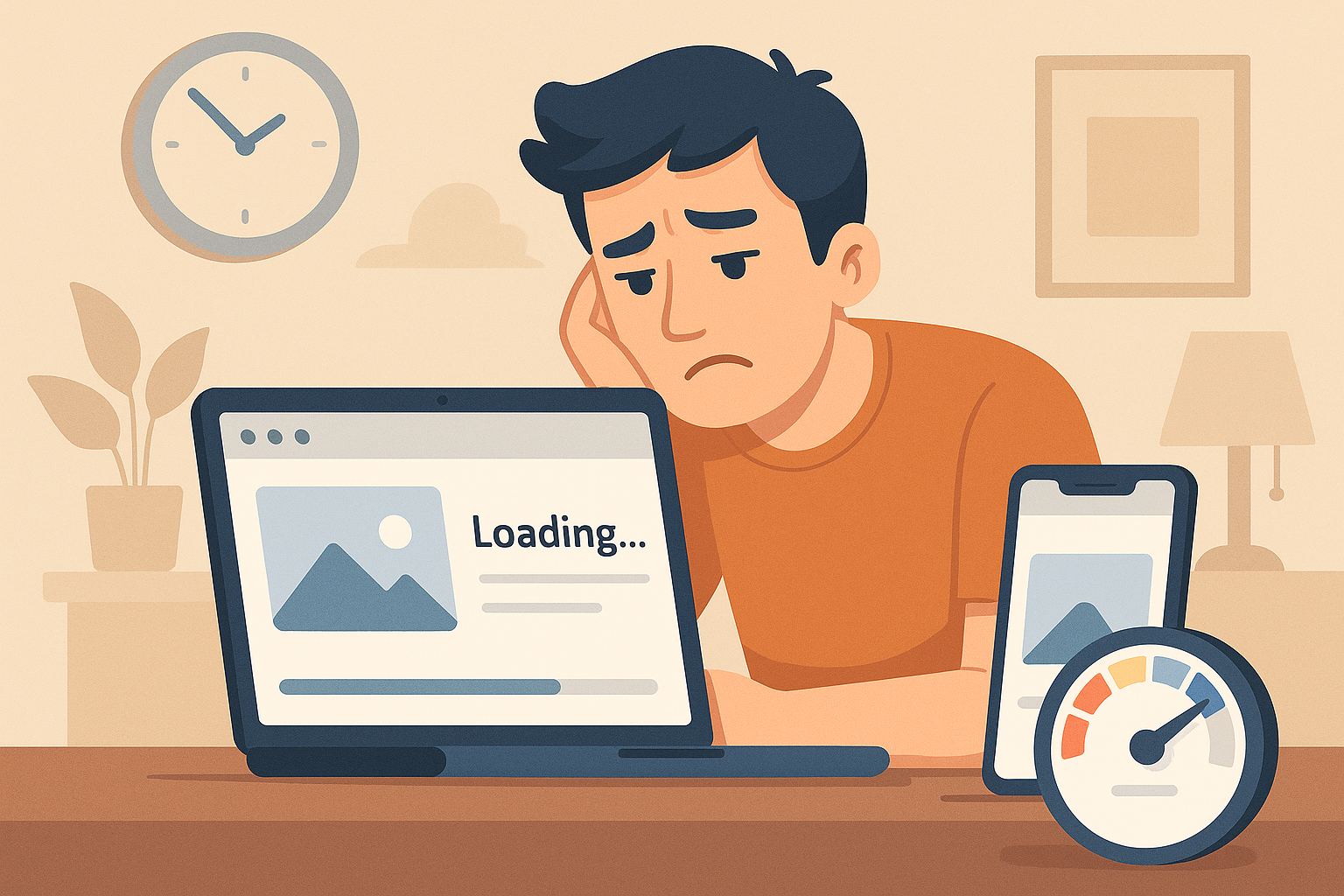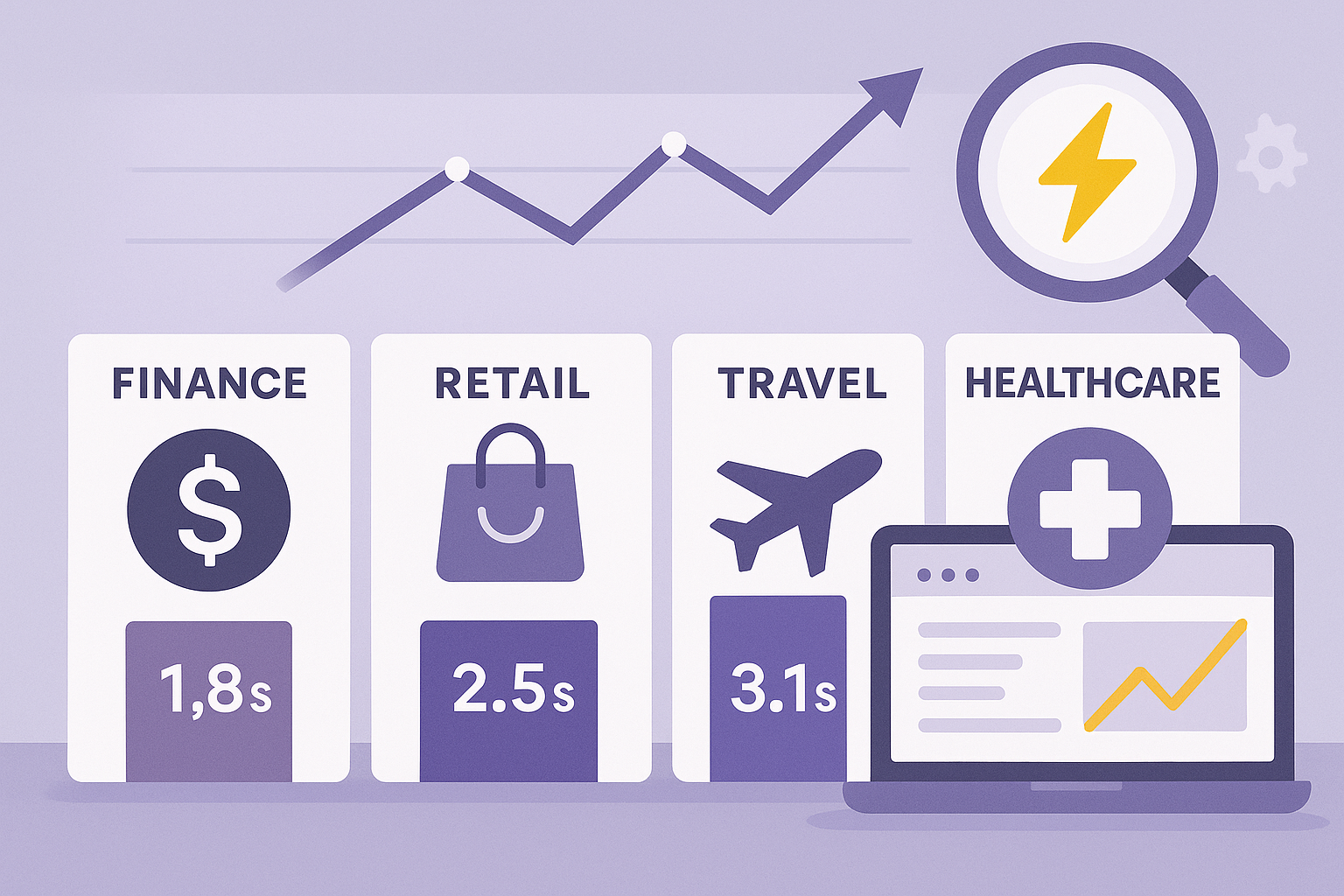
What is a good speed for a website?

If you're a website owner, marketer, or developer aiming to enhance user experience and search engine performance, understanding the importance of website load speed is crucial. This article delves into recent research and provides insights into why optimizing your website's load time is essential.
Optimal Website Load Time
Aim for Speed: Your website should load as quickly as possible to retain visitors and improve engagement.
Mobile Load Time: Ideally, mobile sites should load within 1–2 seconds.
User Expectations:
- 47% of consumers expect a web page to load in 2 seconds or less.
- 40% will abandon a site if it takes more than 3 seconds to load.
Abandonment Rates:
- A 2-second delay can increase abandonment rates up to 87%.
- As page load time increases from 1s to 3s, the probability of bounce increases by 32%.
- From 1s to 5s, bounce probability increases by 90%.
- From 1s to 6s, bounce probability increases by 106%.
- From 1s to 10s, bounce probability increases by 123%.
Google's Benchmark: Google aims for a load time of under 0.5 seconds.
Average Load Times:
- Desktop: 3.21 seconds.
- Mobile: 22 seconds on average, with 19 seconds over 3G connections.
Revenue Impact: Publishers with mobile sites loading in 5 seconds can earn up to 2x more mobile ad revenue compared to those loading in 19 seconds.

User Experience and Perception
Negative Impressions: Users are unlikely to return to websites that take longer than 4 seconds to load, often forming negative perceptions and sharing their experiences with others.
Checkout Abandonment: Slow load times are a primary reason for users abandoning the checkout process.
Session Depth: Delays in page loading negatively impact the number of articles users read per session, regardless of the delay's length.
Consumer Behavior:
67% of UK consumers cite slow loading times as the main reason for abandoning an online purchase.
52% of online shoppers state that quick page loading is crucial for site loyalty.
Delays can lead to distractions:
- 14% will start shopping elsewhere.
- 23% will stop shopping or leave their computer.

SEO and Search Engine Rankings
Google's Stance: Site speed is a confirmed ranking factor, albeit a nuanced one.
- Quote: “Speed is definitely a ranking factor? YES.” — John Mueller, Google, 2019.
Bing's Perspective:
- Quote: “Slow page load times can lead a visitor to leave your website... Bing may view this as a poor user experience and an unsatisfactory search result.” — Bing Webmaster Guidelines, 2020.
Crawling Impact: Google may crawl your site slower if it's very slow, affecting indexing and visibility.

Industry-Specific Load Times
- Automotive Retail: Average load time of 6 seconds.
- Consumer Packaged Goods: 6.1 seconds.
- Finance: 5.1 seconds.
- Healthcare: 5.6 seconds.
- Media: 5.5 seconds.
- Retail: 6 seconds.
- Technology: 6.8 seconds.
- Travel: 6.7 seconds.
Optimization Strategies
To enhance your website's load speed:
Image Optimization: Compress and properly size images; load background images via external CSS.
Code Efficiency:
- Minimize white space, line returns, and comment tags.
- Remove unnecessary META tags and content.
- Reduce the use of unnecessary JavaScript and client-side scripting.
Technical Approach: Prioritize site speed as a fundamental aspect of user experience.
Continuous Improvement: Regularly assess and refine your website's performance to maintain optimal load times.
Conclusion
A fast-loading website is not just a technical nicety; it's a critical component of user satisfaction, conversion rates, and search engine rankings. By focusing on reducing load times, you can significantly enhance user experience, foster loyalty, and improve your site's overall performance in search results.



